|
3.5 stars
Classic K.J. Parker flair and wit! Not my favorite in his canon, but still a fun ride. Concept: ★★ Humor/Wit: ★★★★ Enjoyment: ★★★ I think it's no surprise that I'm a huge fan of K.J. Parker. Both Inside Man and Sixteen Ways to Defend a Walled City are some of my favorite books of all time--I can't seem to get enough of his wit and no-holds-barred sense of "you better keep up, because I'm not slowing down" energy. Pulling the Wings Off Angels had that classic wit and barreling-freight-train energy. What would you do if you found yourself caught in a theological paradox? Think chicken and the egg, but instead of farm animals we graduated right to the big guns: the existence and willpower of God. A clerical student grew up with the truth and lies surrounding his family name. If you believe the myth, he says, then you believe his grandfather trapped an Angel and thwarted the will of God. Despite being a supposed clerical student, our main character has always assumed that this was the myth, not the fact. Angels and God aren't actually real, right? Wrong. Said clerical student finds out the hard way that the unbelievable is possible, and the barometer of believability is much more suggestible and fragile than he imagined. Enter into the vortex with K.J. Parker and find yourself questioning everything and nothing at the same time... No matter what, you're always in for an experience. Like all of Parker's works, I find his unique writing voice and sharp wit truly one-of-a-kind. There really isn't another narrative voice out there that matches him. It's a dash of Pratchett, a splash of something sharper than Gaiman, and a heavy dose of... Parker. Pulling the Wings Off Angels was a truly fun ride. I will admit, I think it's one of my least favorites, but that's not saying much as I still enjoyed it. My personal lower rating is more to do with the subject matter and how heavy-handed the religious theme was in this novella more than anything else. (I can only handle so much theology and philosophical whirlpools.) K.J. Parker fans are already onto this novella, so my pitch here is for the newbies. If you like irreverent takes on religious, smart humor, and quick stories: pick this one up. Thank you to Tordotcom publishing for my copy in exchange for an honest review.
0 Comments
3.5 stars
This is a super solid opener--the mix of urban fantasy with high fantasy, the shifters, the artifacts... What a fun time. Some annoying elements in this opener kept me from loving it more, but I am eagerly looking forward to the sequels. Concept: ★★★★ Worldbuilding:★★★★ Plot/Pacing: ★★★ Character relationships: ★★ Enjoyment: ★★★★ Grace's life is strange. The daughter of the local werewolf pack's Alpha, Grace's inability to shift into her wolf makes her a pariah and an unwelcome member of the dog-eat-dog harsh world of the pack. She's the omega, the bottom feeder, the unwanted one. And so she gets to do the dirty work. This werewolf pack isn't like your typical one--there's something post-apocalyptic happening here. But more on that later. Grace's family lives on the Trepari side of the dividing line in Seattle, Washington, in a version of our world that is rebuilding itself slowly from the ravages of a human (Mondeine) vs. nonhuman (Trepari) war that occurred before Grace was born. The "cloaking"—which had previously hid all shifters, magical species, and Other from the eyes of humans—disappeared. Mass chaos and warfare ensued between the two groups. Walls were erected, cities bisected, supplies and spoils ruthlessly taken by the humans and left in dregs for the magical sides of the line. The magical beings grabbed what they could and turned into small, insulated clans that isolated themselves from all magic and non-magic alike. When we meet Grace, she's on a dangerous heist to steal a unique artifact for her Alpha father and the pack. She's been told this item will help her free her inner wolf, and she's eager to please the pack and bring home this treasure. It's a dangerous mission for any thief, but Grace has had a lot of practice. However, she doesn't expect this artifact to have a guardian. More specifically, a freaking DRAGON guardian... Atrioch has lived for a long, long time. And his life has not been a pleasant one. Cursed from his father's familial line, bound to be within narrow reach of this mysterious artifact he is tasked to protect at all costs, and betrayed over and over again by those closest to him... Yeah. This dragon shifter has a serious chip on his shoulder and a pretty abrasive personality. (I would to, if I was dealt his hand.) But then Atrioch's artifact is stolen—by Grace, a "broken" beast who can't shift and yet can get under Atrioch's skin and deal him unseen emotional blows. It looks like Grace's life is about to get much more interesting... and Atrioch's cursed existence might just be in for some adjustments too. Hooooo boy. What an interesting setup for series! Firstly, let me commend this author for her inventive take on the shifter concept. While many authors in the urban fantasy scene have taken shifters and integrated them into the "real" world—I'm thinking of Patricia Briggs, Laurell K Hamilton, etc.--I have not read any novels that take the concept of a shifter pack and place them in our world but with a heavy dose of post-apocalyptic, war-ravaged modern day. That element was new here, and it was interesting. This series is already slated to be 6 books, and I think that definitely factored in to the pacing and structure of this first book. This is a slowwww burn. A prequel, of sorts, if you really asked me to nail it down. Romance fans will be disappointed at the lack of pairing and romantic interactions in this installment—spoiler alert, there aren't ANY—and urban fantasy/high fantasy fans might be disappointed at the sheer lack of action here too. This is a building block for a much larger series arc, and it definitely feels like it. I think it could have included more momentum for me, personally, to keep me engaged in the flow of the story—but at the end of the day, I still devoured this book in just a few sittings so the character- and world-driven story arc in Pack of Secrets clearly worked for me on some level. Speaking specifically on the characters, I liked Grace a lot. I liked the intricate and messed up pack dynamics. I found Atrioch to be very two-dimensional compared to Grace, but he also did not receive a lot of POV "screen" time so that might have been a casualty of how this book was framed. I did NOT like the naive plotline between Grace and her feelings for her father. Without getting into spoiler territory, let's just say that it's a painfully obvious dynamic and watching Grace delude herself for this entire book was such a drain. It rendered her beautifully complex character into a two-dimensional being at times, and I think that is one of the main reasons why I'm rating this 3 stars instead of 4 stars. It was a thread that continued throughout the entire book and was utterly transparent to the reader and yet never resolved, deepened, or enhanced in Grace's character situation. In a very strong book, this weak element kept shining through in an annoying way. However, all that being said, I am very excited to read book two. 4.5 stars This was too good to rate less than 5 stars, even though I have to admit the pacing was rough. Very lush, heady, and romantic—a debut that every fantasy reader should have on their radar. Writing: ★★★★★ Atmosphere/Descriptions: ★★★★★ Plot: ★★★★ Pacing: ★★★ Xingyin is the daughter of Chang'e, the Moon Goddess. Hidden from the rest of the Celestial Kingdom and their fellow immortals, Xingyin is her mother's secret. An immortal born from a newly immortal moon goddess and the mortal, Houyi—the best archer who ever lived—Xingyin's life was fated for destiny. To save her from discovery, Chang'e sends her daughter away from the moon to seek safety in the Southern Sea. Xingyin does not make the journey. Instead, she finds herself unmoored and on her own in the Celestial Kingdom. It's time to make her own destiny and, while she's at it, save her mother from her imprisonment on the moon. All while hiding the fact that she's the daughter of the moon goddess—the one mortal-turned-immortal who disobeyed the rules of the all-powerful Celestial Emperor. What will happen to Xingyin? Curl up with her as her story unfolds and she tells you all about it... Daughter of the Moon Goddess is one of those reads that reminds you just how good descriptive lyrical fantasies can be. That's a bold statement, I know, but I stand by it. Whether you prefer your fantasy epic, urban, romantic, grimdark, gothic, young adult, or other—fantasy is, at its core, an exploration of realms and concepts that exist outside of our mundane reality. Some of our earliest fantasies sprung from early storytelling and oral histories. Cultural touchstones of mythology, faith, origins of peoples, fairytales. Stories that persist and adapt with our cultures. I'm waxing poetic about storytelling because Daughter of the Moon Goddess feels like a continuation of that conversation. It's rooted in Chinese mythology and yet linking new threads and telling its own story. It's lush. It's descriptive. It's extremely heady in its romanticism. It highlights life lessons and morals. It's its own modern (ancient?) fable. It's one of those tales that unfolds in its own time and in its own way. It is the definition of "unhurried." That, I think, was this story's only weakness—its pacing. As someone who is used to our modern fantasies, I found Daughter of the Moon Goddess frustrating for the first several chapters in its use of extremely slow pacing mixed with time jump intervals. This might be common in Chinese stories, I'll admit ignorance in this field, but it was present to me as a Western reader so I'll caution my other Western readers to persevere. If you can get into the groove with this story and its unique sense of plodding pace, it is truly spectacular. *I receive a small commission from Libro.fm if you use my link above.
4.5 stars
A ship traveling from America to England. A deadly game of find-that-magical-item. A fantastic sapphic romance. Oh and also? More of a truly engaging magical world. I love this series! Characters: ★★★★★ Pacing: ★★ Plot: ★★★★ Enjoyment: ★★★★★ Maud Blyth is on a mission. She's helping her brother, Robin, with his quest to save the magical community of Great Britain from some truly deadly stakes that we discovered in A Marvellous Light, the first book in the series. She's on her way back to Britain via steamship. It's not Maud's fault that her charge, an elderly woman holding a secret magical artifact, dies on the first day of their voyage. And it's not Maud's fault that said elderly lady never actually told her what item in her possession was the all-important magical artifact. Oof. Things aren't going to be so easy, after all. Good thing Maud Blyth is the best person to have in your corner when you're trapped and in need of assistance. Enter Violet Debenham from stage right, the beautiful and enigmatic heiress-to-be with a reputation she keeps in purposeful tatters and way too much personality and charm for any one room. She's a gravitational pull, and Maud finds herself helpless to resist—and discovering that even she could, she may not want to escape Violet's embrace. And from stage left, the broody and constantly irritated Lord Hawthorne enters the scene as well with his anger, lack of magical ability, and tortured past. He's a reluctant player in Maud's play of Christie-like whodunit, but he's present and more helpful than nothing so Maud takes him into her stride too. With magicians, murder, and mayhem... We're in for a bumpy voyage. All aboard!! I am so pleased to report that A Restless Truth proved to be just as delightful as its first book, A Marvellous Light. I was initially bummed to find out that this book abandoned the characters from the first book (Robin and Edwin), but quickly found myself getting over it in the absolutely perfect character in Maud. Maud was everything. I loved her. (Don't get me wrong, I found Violet to be a ton of fun too in different ways, but MAUD!) There's just something about this quaint historical fantasy series that pushes all of my buttons. It's intriguing, yet not pulse-pounding. It's quaint and quiet, yet grips me. It has a dense and interesting magic structure and yet at no point do I feel lost or overburdened by complexity. It's "just right," and continues to be. My only quibble with this installment was its limited setting... I am not a fan of boat-centered content. Or any other limited-setting story that traps our characters into a very small geographic range. Outside of certain mystery books with extreme action, this type of limited setting leads to me as the reader feeling trapped and pent-up in the mental reading space. It's hard for the plot to feel like it's moving along when our characters can only go from A to B... and back... and repeat. I wish this story had taken place somewhere else and given Maud, Violet, and the crew more room to breathe and explore. But, that in mind, I still greatly enjoyed this read. Eagerly awaiting book three!! Many thanks to Tordotcom for my copy in exchange for an honest review. 4.5 stars
This is... an amazing debut. I will be shouting from the rooftops about The Blood Trials for quite some time. Ikenna has my HEART and her science fiction world mixed with old magic has set my expectations for the genre that much higher. Worldbuilding: ★★★★ Plot/Pacing: ★★★★★ Character development: ★★★★ Enjoyment: ★★★★★ We meet Ikenna Amari in a bar. She's getting rip-roaring drunk with her two friends the night before their graduation from the academy—and it's not working. She's trying to forget, she's trying to stop time... and she's spoiling for a fight. Ikenna's life is over, you see. Her grandfather is dead. The Amari family consisted of just two people: Ikenna and her grandfather, Verne Amari. Verne was one of the highest ranking Commanders from the Gamma Unit in the Republic of Mareen, the savior of Mareen's people from the evil Blood Emperor, and the shining star of Ikenna's entire existence. It was the Amaris vs. the world in more ways than one—as two of the only dark-skinned people in Mareen, and the only two in sea of pale-skinned war houses leading the military-based government, Verne was a symbol of equality as much as he was Ikenna's personal inspiration. He was the first in the Amari line, and Ikenna was all set to become a Praetorian soldier to continue their budding Amari war house dynasty. But now the dream is dead, and Ikenna's debating not pledging into the dangerous Praetorian trials to rise up into the academy. What's the point, without her family? However, everything changes when Ikenna—bruised from the bar fight that she got after all—returns home the night before graduation to find her grandfather's best friend and advisor, Brock, there with some shocking revelations. Her grandfather was potentially murdered—by one of his own men in the Praetorian. The stakes have changed. Filled with rage and retribution, Ikenna decides to join the Proletariat trials after all. Two thirds of every class doesn't make it out alive, and the Praetorian is filled with snakes. Watch out, little soldiers. Ikenna's ready for war on a deadly scale. And the cards she has in her hand are older and steeped in the blood of the gods. It's not a fair fight, Ikenna won't even pretend—her arsenal is loaded for bigger beasts. Let the games begin... Ohhhhhhhh let's talk about this absolute banger of a debut. If the above pitch didn't sell you—I don't know how you're NOT yet intrigued, but alright—let me say that this is the grown up, kickass older sibling to what Divergent tried to be. (I love Divergent, but this needs to be said to show you what kind of scale The Blood Trials is operating at.) This is a takedown. A high-stakes competition. A series of challenges leading to a spot in a deadly faction. A physical and mental showdown across multiple spectacles. A personal Everest of reconciling grief with action. An intimate and global discussion of racism and corrupt systems. A series of shocking betrayals and twists with some truly jaw-dropping reactions. A setup for more, and a promise for epicness. The Blood Trials has it all--action, a deadly competition with REAL stakes, an accurately paced romantic arc, a relatable and incredibly flawed main character, discussions of racism and systemic oppression, and the perfect blend of worldbuilding vs. plot for my reading tastes. Do yourself a favor and pick it up. Especially if you're interested in genre blending in the science fiction/fantasy space and are a reader of both young adult and adult work. This is a gem. 4 stars
Modern, witty, and way more enjoyable than you're imagining. A Spindle Splintered was worth the hype. (And WOW, those illustrations!) Concept: ★★ Illustrations: ★★★★★ Storyline: ★★★★ I'm guessing you've heard of Sleeping Beauty. Right? If not the Disney version, then you've heard of her, read an adaptation, or gotten a cultural reference. Sleeping Beauty is one of those princess stories that pervades modern culture and somehow hides its ugliness behind all of the glitter and doll toys. (If you look up the old versions, they are filled with assault and darkness. Ye be warned.) A Spindle Splintered both showcases that ugliness and shines brighter for it, somehow both a cutting commentary and an uplifting tale of womanhood. The duality shouldn't work, but it does. And that's really my takeaway from this novella—a lot of things shouldn't have worked for me as a reader, but they did. This was such a pleasant surprise of a fable. It's witty, it's kind, and it's a bright ray of hope in some truly dark subject areas. The artwork is eerie and perfect. It's just... a great novella. Looking forward to more of this series. Read it! 3.5 stars
Sultry, slow, and dripping with tension-filled nods to a classic novel--The Daughter of Doctor Moreau was a unique reading experience. (Aren't they all, when it comes to this author?) Silvia Moreno-Garcia strikes again! It's a shame that this particular one didn't hit the favorite zone for my reading tastes. Concepts: ★★★★★ Pacing: ★★ Character connection: ★★★ Sense of atmosphere: ★★★ This is going to be an interesting review. I didn't love it, but let me gush about it anyway and try to get you to pick it up... Carlota is growing up on her father's remote estate in the wilderness of the Yucatan peninsula. It's the late 1800s. Her father is a disgraced French scientist—with the name of Moreau. Carlota's childhood is strange. It's filled with medications, an odd cast of friends and servants with physical peculiarities, and the constant reminder from her overbearing white father to keep calm and hide behind the verses of the Bible. Laughton Montgomery is a middle-aged Englishman accidentally entrenched in the Mexican scene. He's an alcoholic with a sad backstory, and he's in serious debt to Eduardo Lizaldes, a wealthy light-skinned Spanish-Mexican man holding all of the cards in this story: including both Montgomery's debts and the estate funding holding up Moreau's life in the wilderness. Moreau needs a man on site to help with his work. Montgomery needs to do what Lizaldes tells him to. Carlota finds herself involved and intrigued by the things simmering around her. As the years pass by, Montgomery and Carlota find themselves at the heart of a slowing unfolding drama involving experimentations, Mexican/Maya politics, and the meaning of humanity. Will they find (or lose) themselves along the way? Mm, mm, mmm. Silvia Moreno-Garcia continues to rock pretty much anything she sets her mind to. So far, I've personally seen her kill it in body horror, 1970s crime noir, futuristic urban vampire dramas, 20th century Mayan death god adventures, and high fantasy quests. There is seemingly nothing she can't conquer—and in this case, her sights are set on a culturally rich interpretation of an H.G. Wells classic, The Island of Doctor Moreau. I think this novel is going to be like all of her other ones: it's going to REALLY work for some people, and it's going to REALLY not work for others. The added complexity to this particular story is the restraints placed upon it. By tying it to the H.G. Wells concepts, this adaptation was already roughly structured to follow certain ideas, tropes, and trains of thought. Whether subverted or followed, The Daughter of Doctor Moreau was going to have certain elements addressed. And that's, I think, where I struggled a bit and others will love this. I love Moreno-Garcia for her ingenuity, her turns of concepts, her bizarre way of writing sentences that make me slow down. Linger. Absorb.. These are stories with interesting characters that do things you don't expect or approve of, and they're often not very likeable or relatable. I've always liked that—the distanced yet intimate journeys with people I don't understand and therefore can't predict. However, this particular story deviated from those expectations. I found Carlota and Montgomery—our two points of view—to be both predictable and weirdly bland, and yet the most likeable of all of her characters. I personally neither liked nor disliked them. Frankly, I think the characters were a lower priority in this story compared to the setting and interweaving of the Moreau/H.G. Wells template and the late 1800s Mexican conflicts that Moreno-Garcia wanted to address. Which, again, is both a negative for readers like myself and yet a huge positive for fans of historical fiction and atmosphere. Was it lush? Yes. Was it filled with dripping gothic tension? Yes. Was it a jungle dream of animal hybrids meeting Mexican interpretations? Yes. But was it a personal, Amy favorite? Nah. I was looking for surprise, for character-driven ingenuity. For an atmosphere I didn't want to leave and felt was sucking me into its pages. The Daughter of Doctor Moreau didn't do that for me. But I think that's more due to the fact that I have an unsustainably high standard for each Moreno-Garcia work that comes in my path and an expectation for characters rather than flaws within this particular story. This book would be a shining star in other circles, and I think it is shining for those who have loved it and are potentially new to this author's work and/or interested in historical fiction. For us returning folks (and those of us who don't care about the H.G. Wells original), I'm not sure. Go into it with a historical and atmospheric expectation, and see what happens. I'm curious about what you'll find... 3.5 stars
Previous fans of Rory Power are in for an adjustment, and the rest are also in for an interesting time. This adult fantasy was a combination of intense setup, rich worldbuilding, uneven pacing, and a unique sense of character. I feel mixed about it...but at the end of the day, positive? I'll do my best to unpack my feelings here. Sense of place: ★★★ Pacing: ★★ for the first half, higher for the second half Character arcs: ★★ 1/2 Enjoyment: ★★★ 1/2 Twins Rhea and Lexos have grown up over the course of a century with a unique set of powers. As a part of this world's ruling class of elite families, the twins' father, Baba, owns several of the world's various magical gifts and has bequeathed them to his children as needed. Rhea controls the passing of the seasons with her seasonal consort sacrifices, while Lexos stitches the constellations in the night sky each night and handles the ocean's tides. In their seat of power, the twins, Baba, and their two younger siblings have ruled their small territory with an iron fist for over a century. The magical gifts of each ruling family pass along to subsequent family members in a patriarchal line of succession—unless someone comes along and murders the whole family and takes the gifts for himself—like Baba did. This mythic and heavily Greek-inspired fable feels epic in scope from the start, with one sibling painting the colors of the garden to color in the plants of the realm and another building mechanical animals that manifest as real beings elsewhere. And that's just the tip of the iceberg for this world's grasp of magic. High concepts of magic are at their best here. Rhea and Lexos are the heart of this novel. Their two points of view carry us through this sprawling epic of political intrigue, toxic families, and cultural influences. A serious dose of ancient Greek carries through into the political structure of this novel—and by serious, I mean SERIOUS, as a non-Greek academic I found this element unnecessarily confusing to grasp—while in other aspects of this novel popular book concepts peek out from the shadows in some of the side adventures and softer plot sides. It's an interesting story set in a very confusing world and tied to a classic twist on a basic plot: how far will you go for family, and when do you choose yourself? Ultimately, I found In A Garden Burning Gold to be a confusing mesh of too much and too little at the same time. Too much: Reliance on the reader's knowledge of Greek influence. As mentioned above, if you are not familiar with the political intricacies of ancient Greek systems, the first half of the book is unnecessarily confusing and puts you immediately on the back foot. It also makes the first half of the book an absolute slog, as that half is almost entirely setup and politics. The author does work on explaining it for the average reader, but it was hard and I was aware that I was missing a few tricks right off the top. An unfortunately frustrating element for me. Too little: Sense of authenticity in the family interactions. This is not a spoiler for significant events, but I will say that for siblings who have coexisted with each other in their family estate for almost 100 years, they do not feel like it. They don't understand each other, there are fundamental divides in their ability to communicate on even the basest of levels. They are also 100% reliant on their relationship with their toxic father to dictate how they interact with each other. It felt like no other family dynamic I've ever seen (positive or negative) and it made the family seem more like distant relatives that happened to be cohabitating as opposed to actual flesh and blood siblings. Siblings know each other, regardless of how the parent tries to manipulate the relationship(s). Even if its a toxic vibe, siblings know each other. I also struggled with some of the plot reveals and character arcs, if I'm honest. Rhea's naivety bothered me, Lexos' inability to separate his sense of worth from his father and their family status seemed static and only gained dynamism toward the end. This is clearly a story that is going somewhere, and I can feel it's going to be epic, but given our starting point the entry into the world was a harder read to enjoy. The ending was fantastic though... I think book two is going to rise from the foundations of this one with a lot of improvement given where we finally got our characters to be. Looking forward to continuing. Thank you to Del Rey for my copy in exchange for an honest review. 2.5 stars
A darkly imagined Cinderella retelling... but I was so, so bored, confused by its purpose, and ultimately bothered by the lack of female agency. Concept: ★★★★ Plot: ★★ Sense of urgency: ★ Oh boy, I do not want to write this review. It's always hard when you expected to love a book and then...you really, really don't. The Shadow in the Glass follows Ella, the protagonist, as she works as a housemaid in the Pembroke's manor home where she used to grow up as a cherished ward. But then Mrs. Pembroke died, and everything changed. Mr. Pembroke's money dwindled and Ella transformed from reluctant ward to hired help. Now a housemaid in a dark, dim manor where the female maids leave one by one in disgrace when Mr. Pembroke...tarnishes them....(spoiler: (view spoiler)), Ella is running out of options and hope. But then in a mysterious book in the library, Ella summons a woman with black eyes. The woman says she can grant Ella 7 wishes in exchange for her soul. Ella, being the kind of stupid that the plot needed her to be, says yes without thinking it through. It's only a matter of time before Mr. Pembroke turns his eye on Ella—and to Ella's worry, on the even younger Aoife—and Ella feels this is her only choice. So then some wishes happen, Mr. Pembroke happens, Mr. Pembroke's son arrives on the scene with interesting results, and...yeah. I had three large issues with this story. I'm verging into pseudo-spoiler territory to discuss them, so consider yourself warned! 1.) This plot was so transparent and boring to have to sit through. From the get-go, we know the set up. Mr. Pembroke is a sexual predator in their home, Ella and the other girls need an out, and Ella takes that out in the form of a deal with the devil for 7 wishes. This concept was fine, but then it never, not once, adapted or grew into something rewarding. In a frankly bizarre form of storytelling, we as readers had to just sit through that plot with no growth, no surprises, no stakes, no intrigue. That is what happens, with the additions of some side characters doing unimportant things. I needed adaptability? Intrigue? Something to surprise me into being interested? Because I wasn't interested, at all, after the setup finished and things just stagnated with more and more of the same. 2.) Ella was not a strong enough character to fill this story. Given the issues of the first point above, I would have been satisfied if Ella was a strong character on the page. I would have been invested in Ella for Ella's sake, and that would have been fine. But I didn't care about Ella. There was something distanced about how she was written, and her stupidity in her choices and the plot holes left around her character's childhood and placement in this world just left me irritated with her and confused. 3.) The discussion of female agency and the historic predation of women was just...not handled to my satisfaction. I know that this novel did not set out to be a feminist retelling, or even contain female-agency themes. But my lingering feelings after reading this novel were sour when it came to the female representation and agency. Mr. Pembroke violates girl after girl in an abuse of his power and place in society. His son's plotline with Ella was essentially a socially-acceptable version of that abuse of power, in a supposedly "romantic" way. Again, I realize that this novel didn't set out to do anything with these historically accurate concepts, but at the same time this was a fantasy with a female demon and a girl who bargained for 7 wishes to literally escape that kind of predation and then...the plot went in different ways for a majority of the time. I don't know, folks, this was clearly not for me. On to the next! 4.5 stars
There's no other way to put this review, so I'm starting off right with the one-two punch: The Last Graduate was 50% a slow-burn sophomore setup, and 50% an active, amazing plot with the cliffhanger to end all cliffhangers. Writing: ★★★★ Character relationships: ★★★★★ Pacing: ★★ World building #2: ★★★★ Where to start?? I guess I'm going to attempt to be completely spoiler free this time around... a concept. Because of that, here's a vague synopsis of the first book, A Deadly Education. El, a powerful "evil" wizard who is prophesized to bring the doom of the wizarding world, attends the deadliest school you could ever conceptualize: The Scholomance. It's a never-ending haunted house—with deadly stakes—and El's lack of connections and rage-filled chip on her shoulder left her in a pickle. That and the fact that the Scholomance, which is sentient and supposed to provide each student with schoolwork tailored to their unique abilities, keeps trying to give El supervolcano spells of mass destruction whenever she asks for help cleaning her dirty dorm room. We should probably mention that El was raised by the kindest hippie witch trope in the world, so El's trying her best to NOT be the next Evil One to End All Things. But anyway... Some things happen. As El is the Evil One, she also interacts with her class's version of the Chosen One with...interesting results that I (totally and utterly) went completely fangirl over. She makes some alliances, some things happen... the vague synopsis peters out here. In this book, The Last Graduate, El and her classmates are now seniors. With the graduation ceremony historically being a bloodbath of epic proportions—they have to fight their way out of a monster pit at the base of the school, full-on gladiator/Hunger Games style—they've got a lot of training and preparation to do. But things this year are different. And their plans are about to be radically changed... and not from the source that they're expecting. That's all. I'm not going to ruin it! My thoughts: So, in short, I will fully admit to being very bored for the first half of this novel. In fact, this book had me questioning my love of the first one! Because it was so much slower, not overly much happened right away, and Noviks' already extremely meandering and overly descriptive writing took center stage and tried to bore me from my beloved characters. But I loved El, and I loved her situation and her friends, so I kept going. And that paid off BIG TIME. The last half of the novel recovered from its slump and ended in a truly dramatic and over-the-top way that made me just lose my mind. I'm upset we've got to wait until September 2022 for our next one! (But will gladly wait, with popcorn, for the finale. It's going to be epic.) |
Amy Imogene ReadsJust someone looking for her own door into Wonderland. Categories
All
Archives
April 2024
|


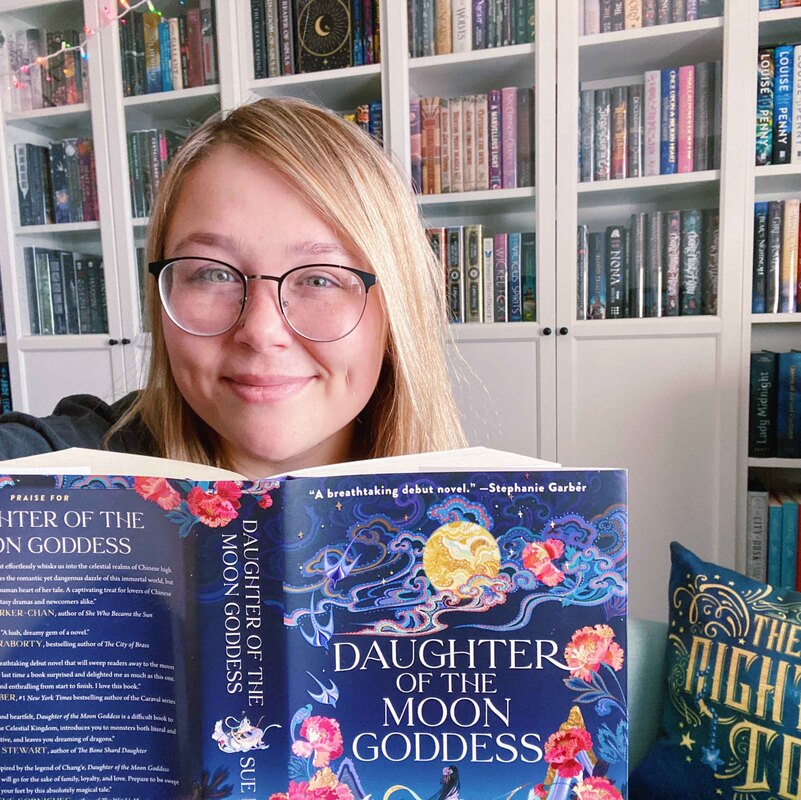
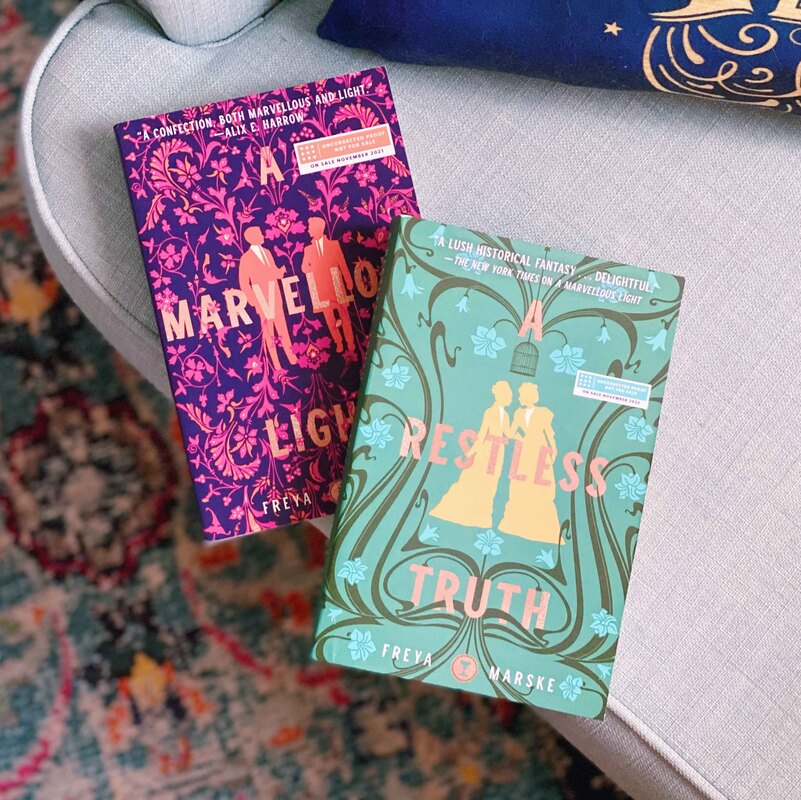
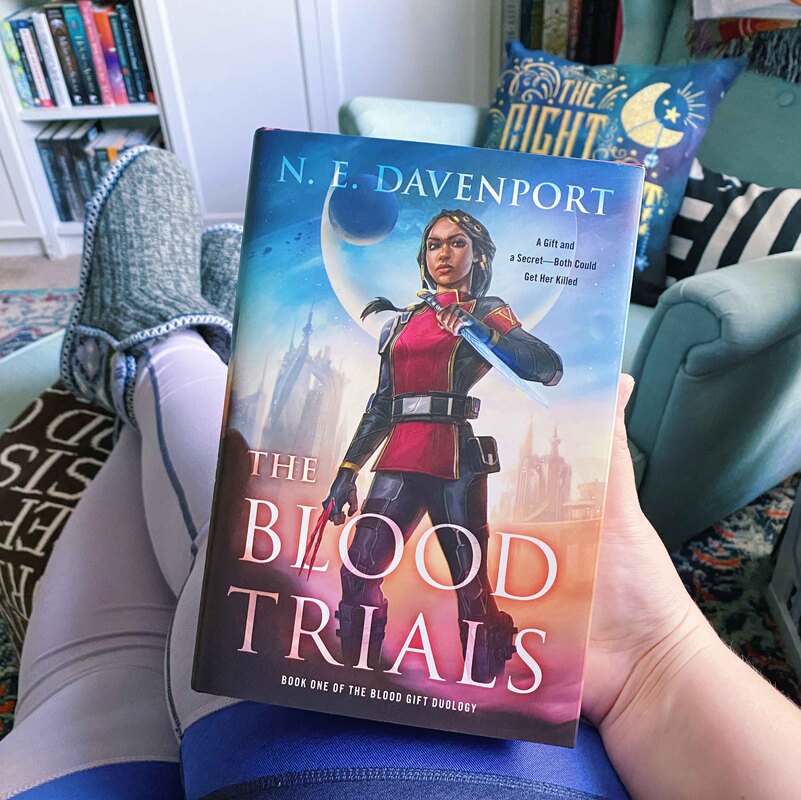
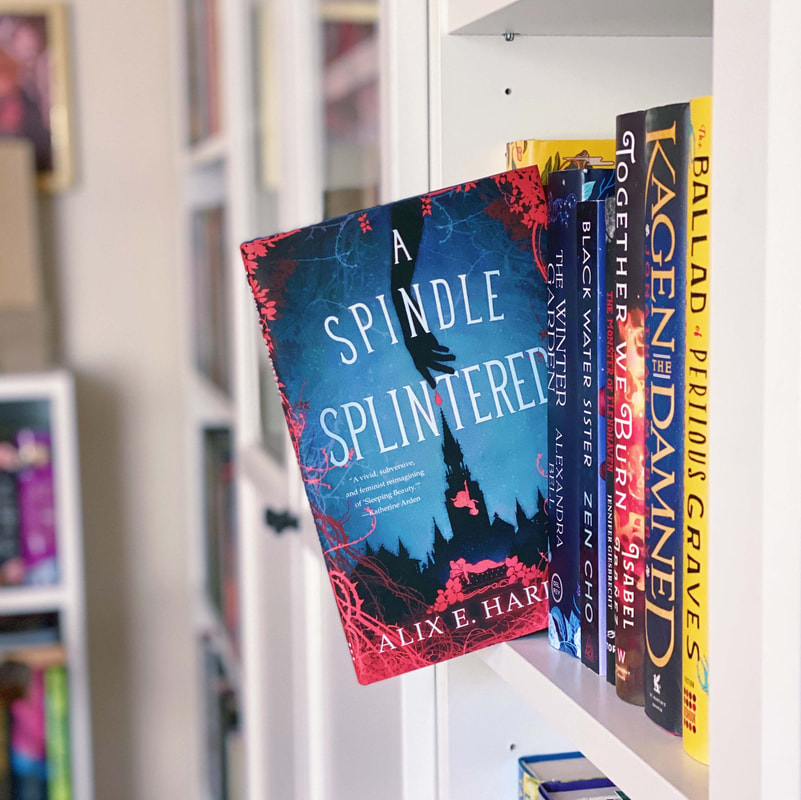
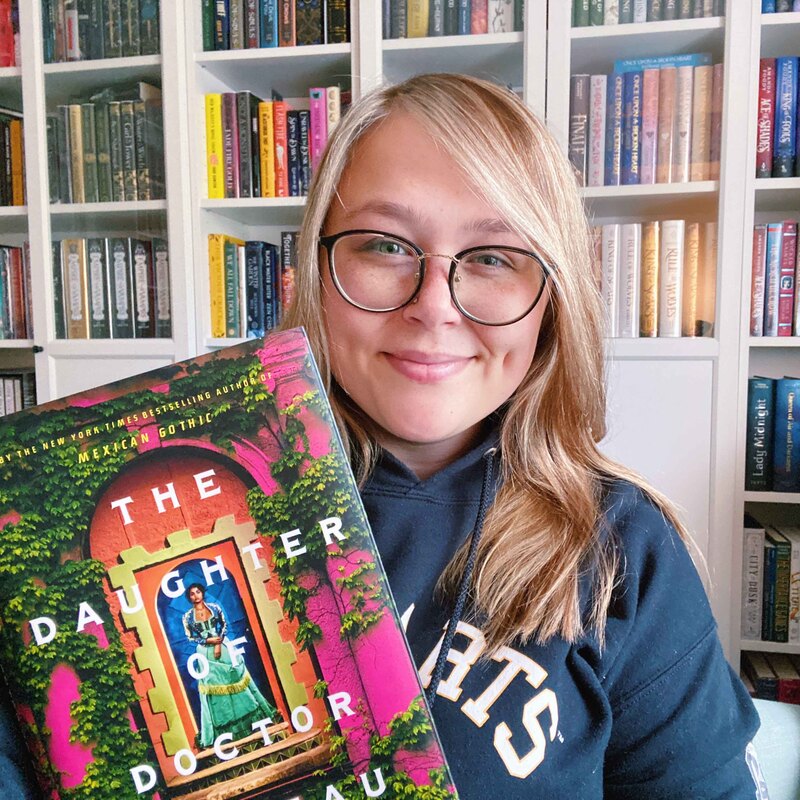
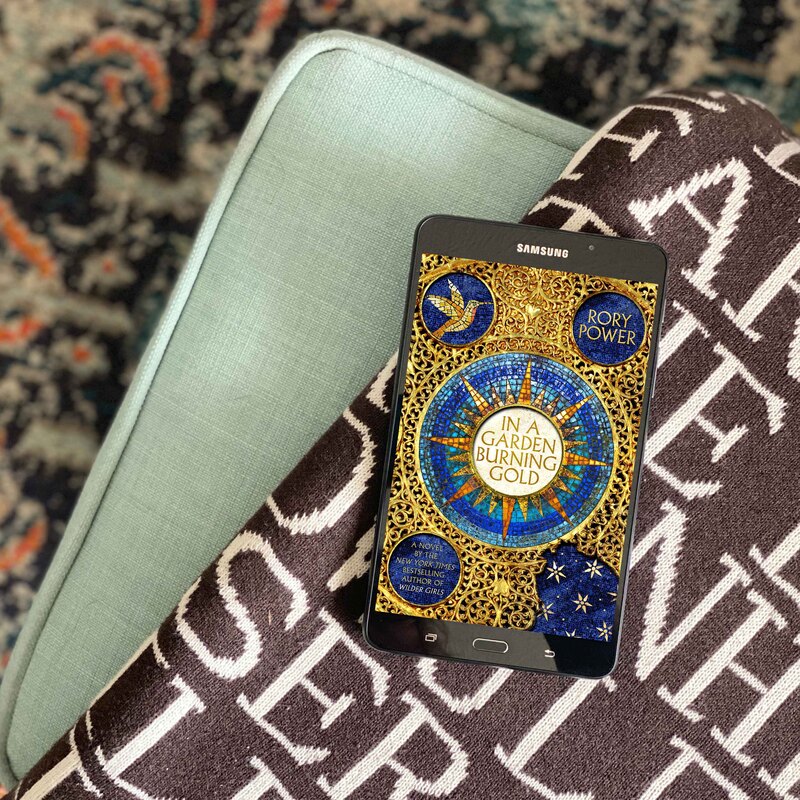
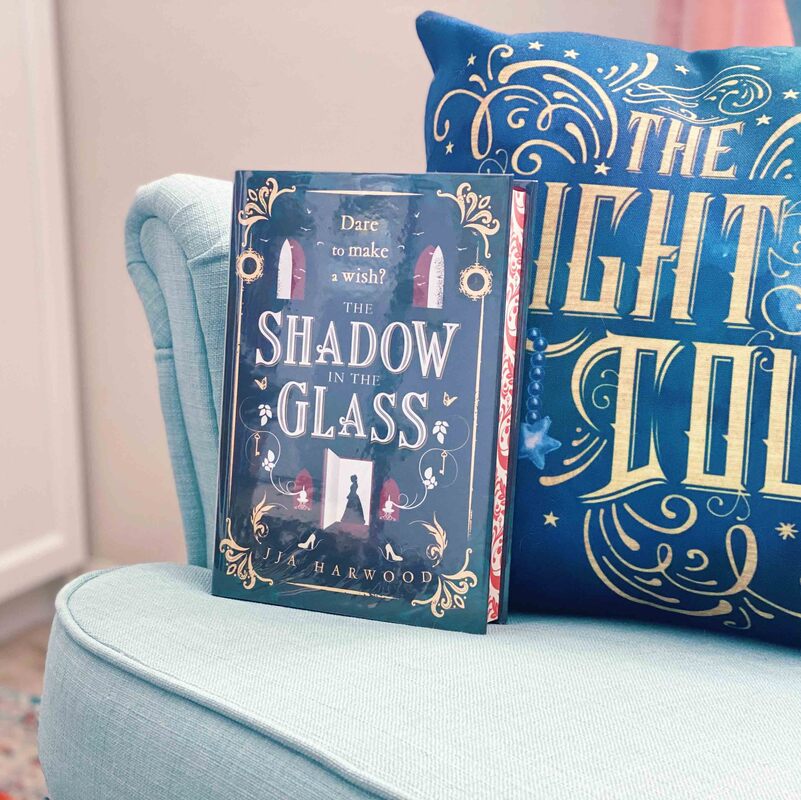
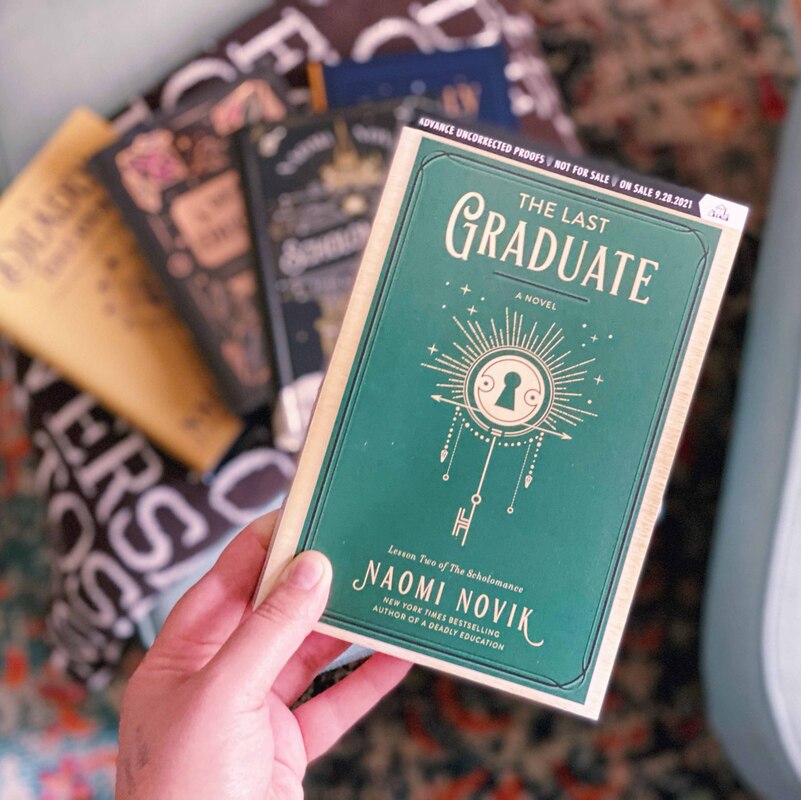

 RSS Feed
RSS Feed
